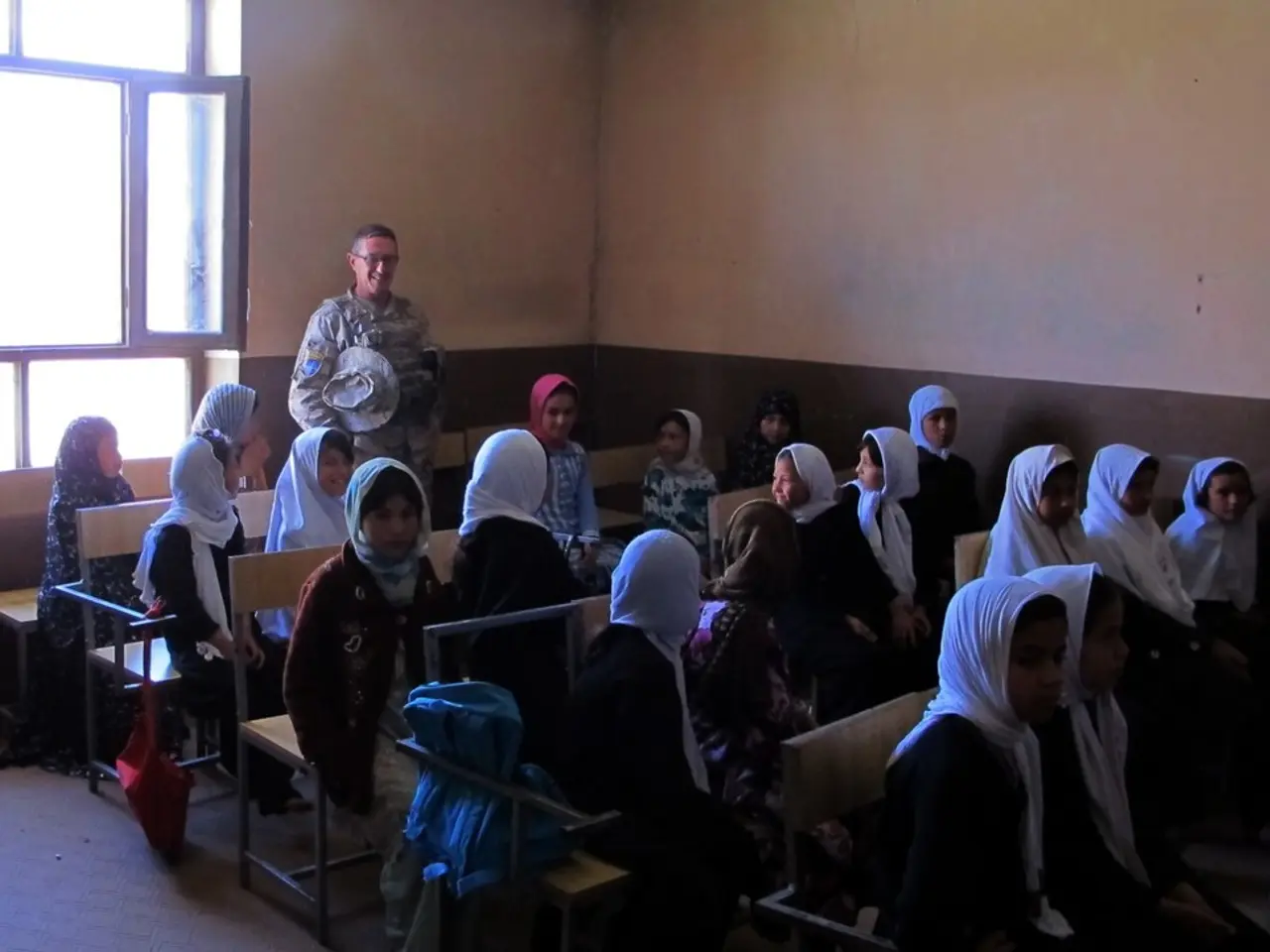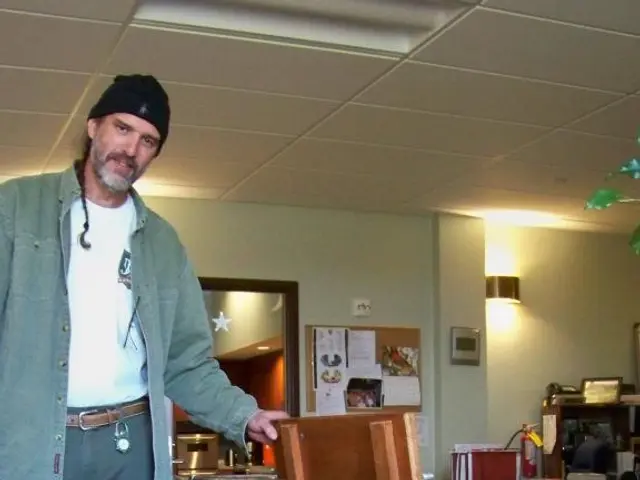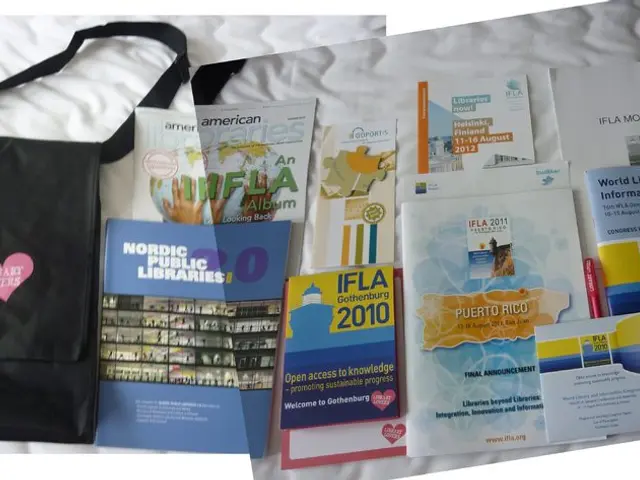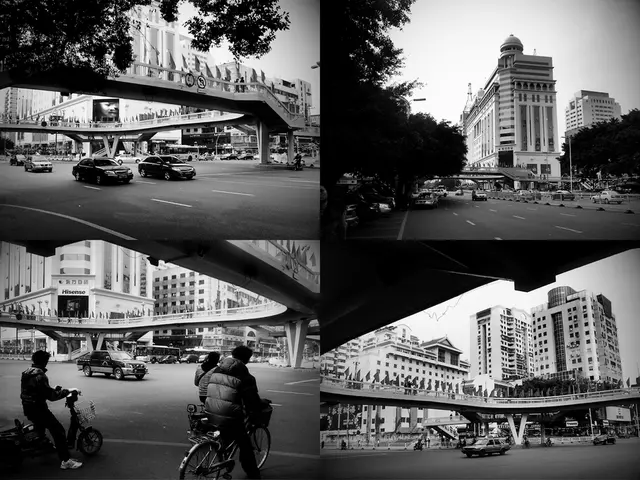Educating BMA Teachers to Encourage a Secure and Caring Atmosphere at School
In a significant move towards fostering safer and more empathetic school environments, the Bangkok Metropolitan Administration (BMA) has embarked on a training initiative to integrate restorative justice into school conflict resolution. This innovative approach, recently championed at an opening ceremony held at the Justice Design Studio, 2nd floor, Thailand Institute of Justice (TIJ), Laksi district, aims to transform BMA schools into safe havens that promote mutual respect, empathy, and peaceful coexistence among students and staff.
The benefits of integrating restorative justice are manifold. By creating safe and compassionate school environments, the program aims to reduce violence against children and foster mutual respect, empathy, and peaceful coexistence among students and staff. This approach also enhances conflict resolution skills, equipping teachers with constructive tools to manage conflicts, repair damaged relationships, and encourage open dialogue, enabling all parties involved to express their needs and take accountability.
Moreover, the approach improves student behaviour and reduces aggression. By focusing on accountability and collaboration rather than punishment, it helps prevent repeated acts of violence and reduces aggressive behaviour among youth. Furthermore, the initiative aims to achieve a zero dropout rate by addressing conflicts effectively and creating a more inclusive and supportive school climate.
The approach also promotes collective responsibility for justice, encouraging shared responsibility for justice within the school and broader community, building a culture of empathy and understanding.
The training program, following a formal Memorandum of Understanding between the TIJ and BMA, is being implemented across Bangkok schools through a structured training program with eight sessions. The cultural context of Bangkok, which values harmony and community, may enhance the effectiveness of restorative justice compared to more punitive systems, potentially making this approach more sustainable and impactful in the local context.
Sanon Wangsrangboon, Deputy Governor of Bangkok, commended the TIJ for initiating a campaign to raise awareness of restorative justice practices. He stated that this training programme marks a significant step in integrating restorative justice into school conflict resolution. The first batch of training workshops on restorative justice in educational settings was opened by Sanon Wangsrangboon.
This initiative marks a pioneering step in embedding restorative justice principles into the fabric of school conflict resolution systems, signaling a shift towards more restorative, rather than solely disciplinary, practices in Thai education. The goal of the initiative is to establish BMA schools as model safe spaces, reduce violence against children, and achieve a zero dropout rate, with restorative justice serving as the main mechanism.
Both the TIJ and the BMA have launched a joint policy advocacy campaign to promote restorative justice in educational settings. The approach emphasises empathy, accountability, and peaceful coexistence by encouraging open dialogue among all parties, thereby offering a promising avenue for meaningful and lasting educational reform in Thailand.
[1] TIJ Press Release (2021). Integrating Restorative Justice in Bangkok Schools. [online] Available at: https://tij.or.th/en/news/integrating-restorative-justice-bangkok-schools/
[2] BMA Press Release (2021). Restorative Justice Training for BMA Schools. [online] Available at: https://bma.go.th/news/restorative-justice-training-bma-schools/
[3] UNICEF Thailand (2021). Restorative Justice in Schools: A Model for Change. [online] Available at: https://www.unicef.org/thailand/media/52806/file/Restorative-Justice-in-Schools-A-Model-for-Change.pdf
- The benefits of integrating restorative justice in schools extend beyond conflict resolution, also improving education and self-development by promoting personal growth, learning, and empathy.
- This approach to education can positively impact business and tourism by cultivating a more empathetic and responsible student body, potentially attracting organizations and visitors committed to ethical practices.
- Moreover, the focus on environmental justice within restorative justice initiatives could lead to a greater awareness and respect for the environment, particularly among the younger generation, fostering a sustainable future for community development.
- Furthermore, by addressing health concerns such as mental health issues that may arise from bullying or conflict, restorative justice can contribute to creating safe, supportive, and healing educational environments for all students.





